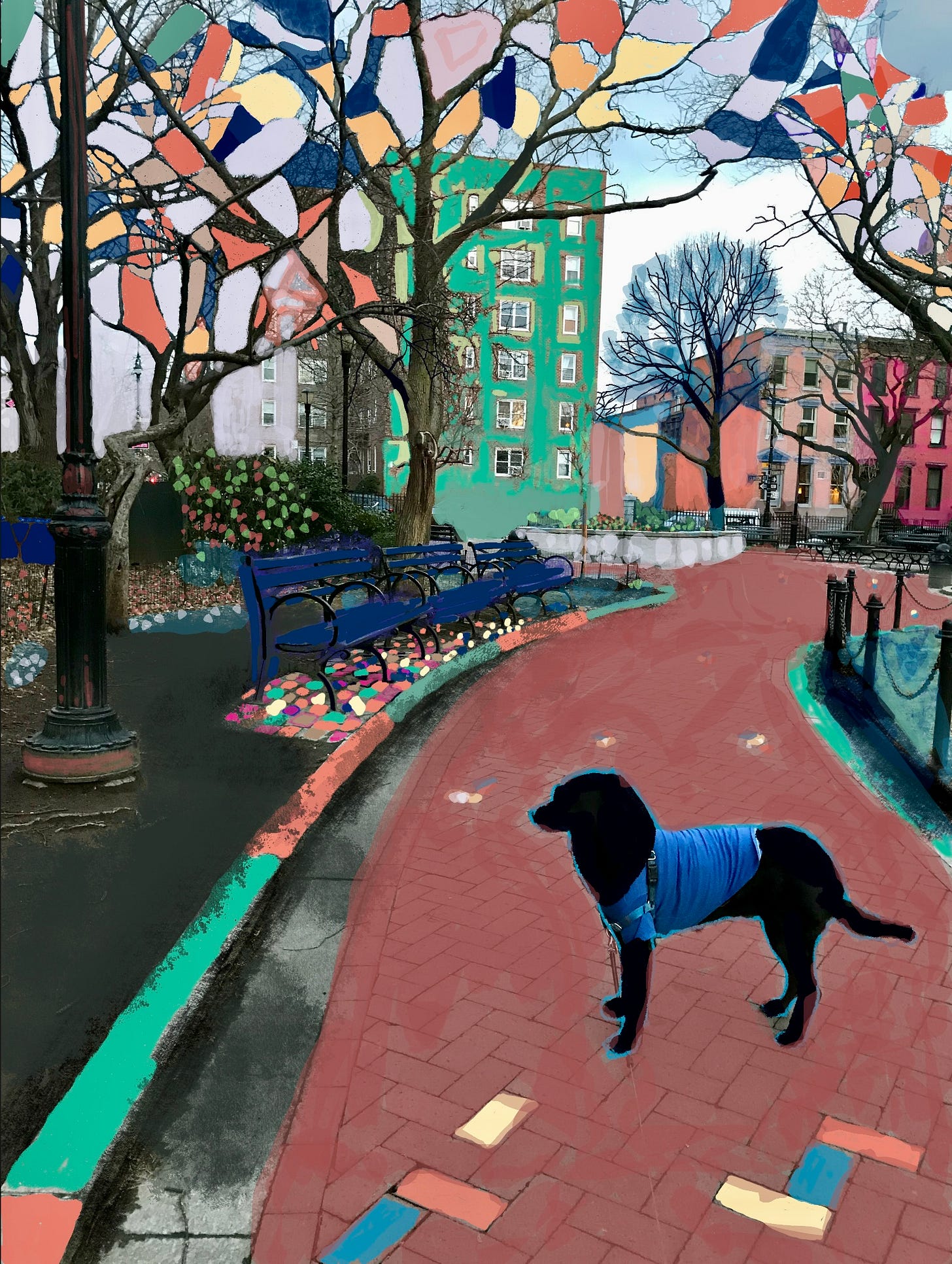Tired? Creatively slugging along at best?
Goethe says* that happiness is based on enjoying the things outside of ourselves that change and reoccur. He meant things as simple as day and night, but also the seasons, the different flowers and fruits “and all the other recurring pleasures.” In fact, he says that the more we are open to enjoying these, “the happier we are.”
So if this is so important, what happens to people when you are selling Halloween in high September, the moment after back-to-school is over? And Christmas starts right after that, with a nod to Thanksgiving with pumpkin spice and pies, and smiling decorative turkeys freakishly unaware of their role. There are consequences.
There is no pause to look forward to anything.
A lot of us shut it all out as consumerist nonsense.
Is that okay? No. As Goethe would have it, if we ignore the yearly pleasures and refuse their sweet temptations, “then comes on the sorest evil, the heaviest disease—we regard life as a loathsome burden.”
That sounds like depression to me. With this idea you can stay out of misery by enjoying treats that happen for all of us. We like to be singled out for treats, but it’s not necessary.
I think a lot of us have day and night down pat. We work in the day and then use the night for what we love, want, and need. It seems funny to mention such a simple reoccurrence, and yet it’s the main way we make sense of our lives. For many, every workday evening arrives in the context of freedom.
The changing of the seasons can be melancholy when winds are turning colder, but it takes only a shift in mindset to cherish September for being September, for its gifts of coolness and apples. Sweater weather. In Goethe’s era food was more secure than ever, but you’d still only expected cherries in cherry season. I’d love to tell Goethe about the produce for sale in today’s world, each box of color nearly toppling with yellow grapefruits, purple-black eggplants, green and white striped watermelons bursting into red inside, and pyramids of oranges—and almost all of it, all seasons of the year.
Today fruit is a nonstop bonanza! But there is a reason we feel good when we eat the first garden tomatoes in spring, and peaches in summer, and apples in fall.
If you live somewhere where the leaves turn golden, carrot, and oxblood, and then flutter down from the trees, you’re better off loving it than ignoring it or lamenting it for the murder of warm weather. Sure the last buds of summer are dying on the vine, but we must not diabolize time.
All chipper joy in the arrival of things has to contend with an equal if unexpressed notation of things passing away, but it’s a matter of where we place our brass emphasis and other inner weights.
Also maybe it feels like sophisticated, smart people don’t play along with the yearly coercion of holiday after holiday. But maybe the seasonal coercion is a big part of what keeps us feeling happy, in tune, looking forward.
Look, eat and admire the season, or just enjoy the idea that it has come again, but at least don’t meet the idea of it with scorn. It is good to be in rhythm with nature and with the wider cult and culture.
I wrote a book on this same idea, and might have included Goethe on the subject, but didn’t happen to. I wrote The Wonder Paradox because after my book Doubt came out, many people told me that the various holidays meant nothing to them or distressed them on principle. I think if you are not religious you can enjoy the holidays nonreligiously.
In The Wonder Paradox I talk about how that works. It helps to notice how weddings and funerals have retained some comforting behaviors that used to be religious. A little historical research shows many rituals predate the religion with which we associate them. Weddings and funerals often feature a solemn reading of poetry in the place of prayer or along with it. The Wonder Paradox argues that we would do well to incorporate a moving poem into other holidays that used to be religiously moving but just aren’t anymore.
Now is the time to ignore the Halloween candy but to enjoy or try to enjoy the leaves and the weather both turning.
___
*“All comfort in life is based upon a regular occurrence of external phenomena. The changes of the day and night, of the seasons, of flowers and fruits, and all other recurring pleasures that come to us, that we may and should enjoy them—these are the mainsprings of our earthly life. The more open we are to these enjoyments, the happier we are; but if these changing phenomena unfold themselves and we take no interest in them, if we are insensible to such fair solicitations, then comes on the sorest evil, the heaviest disease—we regard life as a loathsome burden.”
– Johann Wolfgang von Goethe, Poetry and Life
Well dears and don’ts, I can only hope that gave you something to think about, somewhere in there. There is a lot to think about, I find, but it’s also easy to just stare at the dog, the curtain, the sky. Ten out of ten, would stare again. Stay warm, get your shots, don’t kill yourself, and I shall return to encourage us again.
love,
Jennifer




